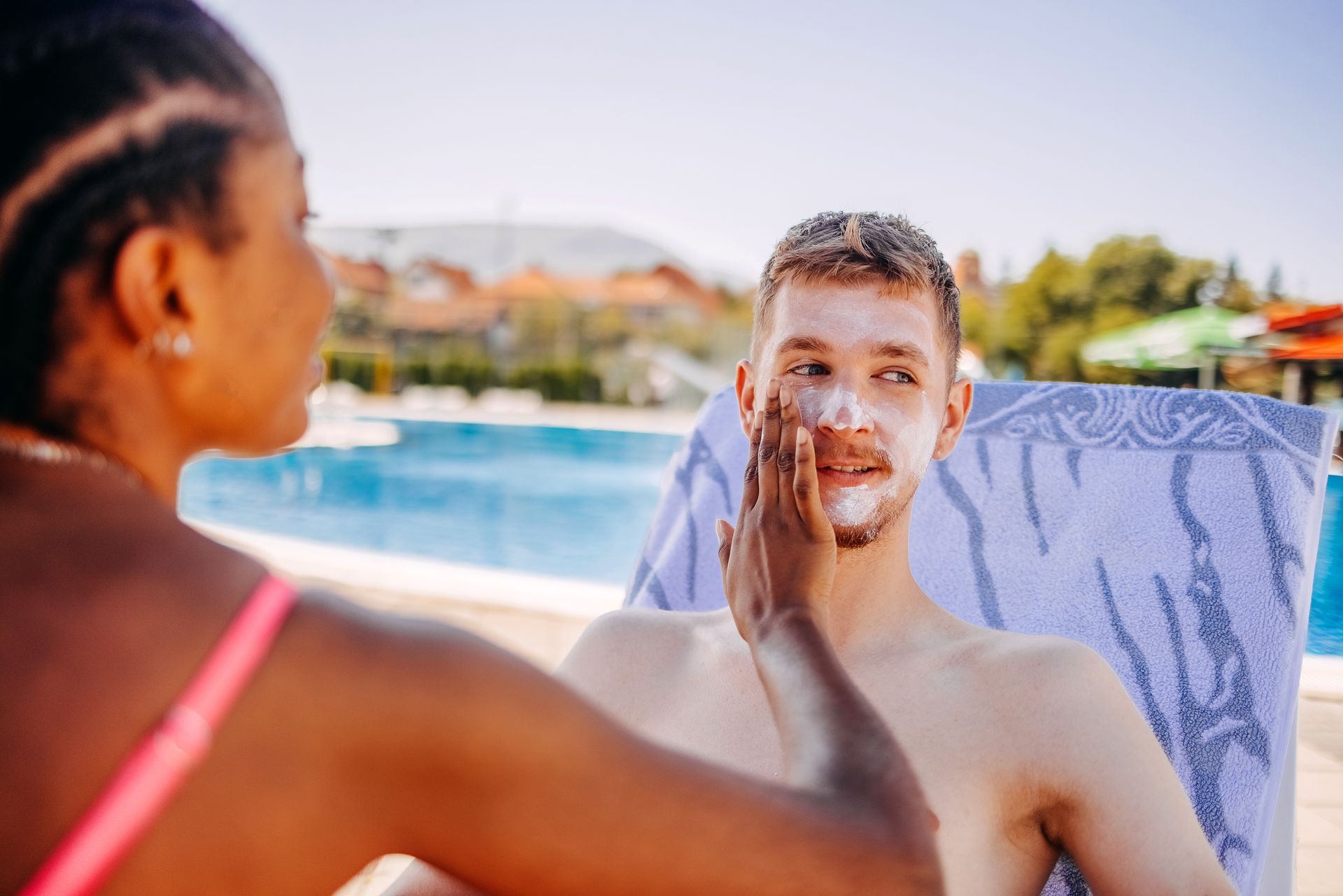How to Choose the Right Sunscreen: Expert Advice from Karen Nern, MD

Margaret "Meg" Mercante,
MD Candidate, Class of 2027
University of Virginia
School of Medicine
When it comes to sun protection, sunscreen is your first line of defense. But with so many options, how do you choose the right one? According to Dr. Karen Nern, board-certified dermatologist, Mohs micrographic skin surgeon, and co-founder of The Sun Bus, it’s all about understanding what your skin needs.
"Look for a broad-spectrum sunscreen with an SPF of at least 30," advises Dr. Nern. "Broad-spectrum means it protects you against both UVA and UVB rays, which are both harmful to your skin." UVA rays go deeper into the skin and can cause loss of elasticity as well as sun damage that can lead to skin cancer. UVB rays cause burning, which can also lead to skin cancer. Without this dual protection, your skin remains vulnerable to long-term damage.
Water resistance is another crucial factor. Activities like swimming or outdoor exercise often result in sweat or water exposure, reducing sunscreen’s effectiveness. Choosing a water-resistant product ensures that your skin remains protected during these activities. However, it’s equally important to remember to reapply, as even the best sunscreens lose their effectiveness over time. Water-resistant sunscreens, which can last on wet or sweaty skin for up to 80 minutes. For sunscreens that are not waterproof or sweatproof, they will need to be reapplied every two hours or after swimming or sweating.
Dr. Nern also recommends considering your skin type. "If you have sensitive skin, mineral sunscreens with zinc oxide or titanium dioxide are often a better choice because they’re less likely to cause irritation and are a very effective option." Zinc oxide and titanium dioxide act as physical barriers that sit on the skin’s surface, reflecting harmful rays away from the skin. Unlike chemical sunscreens, which absorb UV rays, mineral options are less likely to cause irritation or allergic reactions, making them ideal for children and those with delicate skin.
Sunscreen is the number one tool to fight skin cancer, the most common kind of cancer in the US. While sunscreen is an essential defense, it’s not the only measure you should take. Wearing protective clothing, such as long-sleeved shirts, pants, and wide-brimmed hats, enhances your protection. Seeking shade during peak sunlight hours, typically between 10 a.m. and 4 p.m., further reduces your exposure to harmful rays.
Pro Tip: Sunscreen application techniques are just as important as the product itself. Apply sunscreen generously about a shot glass worth for your body and reapply every two hours, especially after swimming or sweating. Many people apply too little, which can significantly reduce the level of protection. Reapplication is equally vital, especially after swimming, sweating, or towel drying.
By combining these protective strategies and selecting the right sunscreen for your needs, you can significantly reduce your risk of developing skin cancer. Regular use of sunscreen, along with other sun safety practices, helps maintain healthier, younger-looking skin and provides peace of mind as you enjoy outdoor activities. Remember, sun protection is not just a summer priority; harmful UV rays are present year-round, even on cloudy days.
Making informed choices about sun protection is an investment in your long-term health. With guidance from experts like Dr. Nern and simple adjustments to your daily routine, you can keep your skin safe and radiant for years to come.
References:
American Academy of Dermatology. How to select a sunscreen.
https://www.aad.org/public/everyday-care/sun-protection/shade-clothing-sunscreen/how-to-select-sunscreen.
The Skin Cancer Foundation. Sunscreen FAQs. Skin Cancer Foundation website. https://www.skincancer.org/skin-cancer-prevention/sun-protection/sunscreen.
American Academy of Dermatology. How to apply sunscreen. https://www.aad.org/public/diseases/skin-cancer/prevent/sunscreen-apply.
The Skin Cancer Foundation. Prevention guidelines. Skin Cancer Foundation website.
https://www.skincancer.org/skin-cancer-prevention.

















